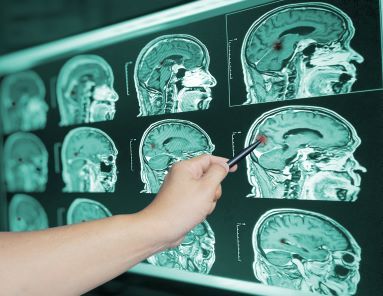
Any brain injury can affect your life in countless ways, from your memory and personality to your movement and other bodily functions. Therefore, it is also crucial to understand the differences in types of brain injuries and how they can affect you or your loved one.
One of the most important distinctions is a traumatic vs. a non-traumatic brain injury. Read on to learn more about the essential differences between these two types of brain injuries and why these differences matter in Illinois personal injury cases.
What Is a Traumatic Brain Injury?
According to the National Institute of Neurological Disorders and Stroke, a traumatic brain injury (TBI) occurs when an external force damages the brain. These injuries can result from a blow, jolt, or sudden impact to the head or body or an object penetrating the skull. TBIs vary in severity, from mild cases with temporary symptoms to severe injuries that cause lasting or life-threatening damage.
Common TBI symptoms include:
- Confusion
- Memory issues
- Headaches
- Dizziness
- Behavioral changes.
Additionally, TBIs fall into two categories: penetrating (open) injuries, where an object enters the brain, and non-penetrating (closed) injuries, which result from a forceful impact on the head.
Common Causes of Traumatic Brain Injuries
Common causes of TBIs include:
- Catastrophic car accidents
- Slips and falls
- Sports injuries
- Assaults
- Blast injuries from explosions
- Birth injuries
Medical malpractice is one of the leading causes of traumatic brain injuries. Healthcare professionals can make mistakes that lead to oxygen deprivation to the brain or otherwise damages the brain. Common examples of medical malpractice that can result in brain injuries include:
- Medication errors
- Anesthesia errors
- Surgical errors
- Failing to monitor patients
- Misdiagnosis
- Failure to diagnose
- Untreated or undiagnosed infections
- Improper use of delivery instruments during birth
- Failure to properly intubate a patient
- Failure to respond to an emergency
What Is a Non-Traumatic Brain Injury?
Unlike traumatic brain injuries, which result from direct physical harm, non-traumatic brain injuries arise from internal factors affecting the brain’s function. These injuries disrupt the brain’s normal activity and can lead to many types of brain damage. Common types or causes of non-traumatic brain injuries include:
- Stroke: A blood clot or burst blood vessel blocks blood flow to the brain, damaging brain cells.
- Oxygen Deprivation: Known as hypoxia or anoxia, this can occur due to near-drowning, cardiac arrest, or respiratory failure, leading to cell damage from insufficient oxygen. This type of acquired brain injury can also happen during birth if doctors do not properly monitor a baby or make medical errors.
- Infections: Conditions like meningitis or encephalitis cause inflammation in the brain, which can harm brain tissue due to unsafe pressure from the brain pressing against the skull.
- Toxic Exposure: Certain harmful substances, such as carbon monoxide or certain drugs, can damage brain cells upon exposure.
- Tumors: Brain tumors or their treatments, such as radiation, can disrupt brain function by compressing or destroying nearby cells.
Why You Need to Take Any Brain Injury Seriously
Any brain injury can have significant long-term complications, including:
- Impaired movement or coordination
- Partial or complete paralysis
- Permanent loss of certain bodily functions
- Changes in your memory and personality
Given these severe consequences, you might wonder why atraumatic vs. traumatic brain injuries (or a TBI vs NTBI, in medical jargon) matters. The reason the differences between these two types of brain injuries matter is that TBIs are often the result of someone else’s careless or reckless actions. Therefore, you may have a reason to pursue a personal injury claim if someone else caused your TBI through their actions. However, non-TBIs may also be due to carelessness, especially if the injury occurred in a medical setting.
Salvi, Schostok & Pritchard P.C. understands what’s at stake for brain injury victims and can help you recover fair compensation after you suffer a TBI caused by someone else. Our Illinois brain injury lawyers have recovered over $3 billion in compensation for our clients, including some of the highest jury verdicts in Illinois legal history. We’re well-equipped to handle every aspect of your claim and fight for the money you need. Call us today or complete our contact form for a free consultation.